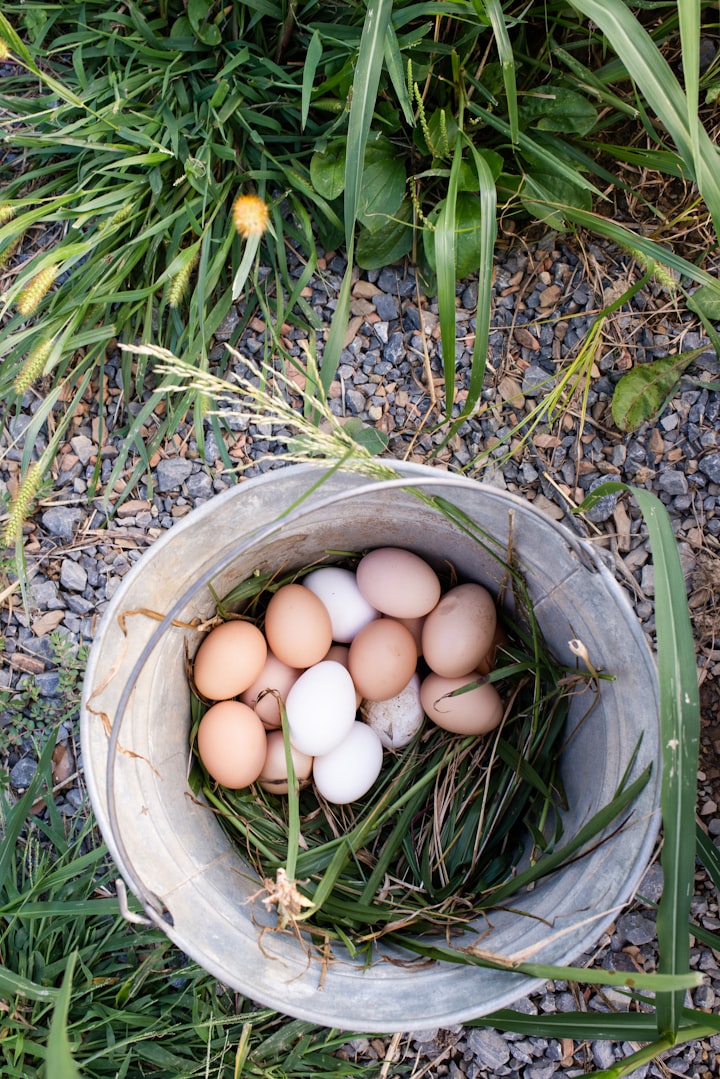Small Farms, Big Rewards: How Chickens and Cows Can Bring Joy to Your Life
Enjoy life on a farm

As a small-scale farmer, I can attest to the joys and rewards of raising livestock on a small farm. Not only does it provide me with a sense of purpose and fulfillment, but it also allows me to produce my own food and contribute to sustainable farming practices. In this article, I will share my experiences and insights on raising chickens and cows on a small farm, including the benefits, challenges, and resources available for beginners.
The Joys of Small-Scale Farming
There is something special about the connection between a small farmer and their livestock. Unlike factory farming, where animals are treated as commodities, small-scale farmers have a personal relationship with their animals. They know their names, their personalities, and their quirks. This connection not only enhances the quality of life for the animals, but it also brings joy to the farmer.
In addition to the emotional rewards, small-scale farming also provides practical benefits. By producing their own food, small farmers have greater control over the quality and safety of their food. They can choose to raise their animals without antibiotics or hormones, and they can ensure that their animals are treated humanely. Furthermore, small-scale farming promotes sustainable practices, such as crop rotation, composting, and natural pest control.
Benefits of Raising Chickens and Cows on a Small Farm
One of the most popular livestock choices for small-scale farmers is chickens. Chickens are relatively easy to care for, provide a steady supply of eggs, and can even be raised for meat. Additionally, they provide pest control by eating insects and can help fertilize the soil with their droppings. Chickens come in many breeds, each with their unique personalities and characteristics.
Cows are another popular choice for small-scale farmers, especially those interested in dairy or meat production. Cows require more space and resources than chickens, but they can provide a significant source of milk, cheese, and beef. Additionally, cows can help maintain pastures by grazing and fertilizing the soil. There are many breeds of cows, each with their unique traits and suitability for different climates and purposes.
Small Farm Livestock for Meat and Dairy Production
For those interested in producing their own meat and dairy, small-scale farming offers a sustainable and humane alternative to factory farming. By raising their animals on pasture and providing them with a natural diet, small farmers can produce high-quality meat and dairy products that are healthier and more flavorful than their factory-farmed counterparts.
For meat production, chickens and cows are the most common choices for small farmers. Chickens can be raised for meat in as little as 8 weeks, and their meat is lean and flavorful. Cows, on the other hand, take longer to raise for meat but can provide a steady supply of beef for the freezer.
For dairy production, cows are the obvious choice. However, goats and sheep are also suitable for small-scale dairy production and require less space and resources than cows. Dairy animals require daily milking and specialized care, but the reward is fresh and delicious milk, cheese, and yogurt.
The Health Benefits of Small Farm-Raised Meat and Dairy
In addition to the ethical and environmental benefits, small farm-raised meat and dairy products also offer health benefits. Unlike factory-farmed animals, which are often raised in crowded and unsanitary conditions, small farm animals are raised in a natural and healthy environment. They are fed a natural diet and are not given antibiotics or hormones, which can lead to antibiotic-resistant bacteria and other health problems in humans.
Furthermore, small farm-raised meat and dairy products are often higher in nutrients and healthier fats than their factory-farmed counterparts. Grass-fed beef, for example, is higher in omega-3 fatty acids and conjugated linoleic acid (CLA), which have been linked to a lower risk of heart disease and cancer.
Sustainable Farming Practices for Small-Scale Livestock
Sustainable farming practices are essential for small-scale livestock farming. These practices ensure that the animals are raised in a healthy and humane environment, while also promoting soil health and biodiversity. Some sustainable farming practices for small-scale livestock include:
Rotational grazing: This involves moving the animals from one pasture to another to prevent overgrazing and promote soil health.
Composting: This involves composting manure and other organic materials to create a natural fertilizer for crops.
Natural pest control: This involves using natural predators, such as chickens, to control pests instead of pesticides.
Cover cropping: This involves planting cover crops to prevent soil erosion and improve soil health.
Feeding and Caring for Chickens and Cows on a Small Farm
Feeding and caring for chickens and cows on a small farm requires some knowledge and skill. Chickens require a balanced diet of grains, protein, and calcium, as well as access to fresh water and a clean coop. Cows require a diet of hay, grass, and grains, as well as access to fresh water and shelter.
Additionally, both chickens and cows require regular health checks and vaccinations to prevent disease. Small-scale farmers should also have a plan in place for treating sick or injured animals and disposing of animal waste.
Challenges of Small-Scale Livestock Farming and How to Overcome Them
Small-scale livestock farming is not without its challenges. Some of the common challenges include:
Predators: Chickens and cows are vulnerable to predators, such as foxes, coyotes, and raccoons. Small-scale farmers can protect their animals by using fencing, guard dogs, and other deterrents.
Disease: Livestock are susceptible to a range of diseases, which can be costly to treat and can spread to other animals. Small-scale farmers can prevent disease by practicing good hygiene, providing a healthy diet, and vaccinating their animals.
Cost: Raising livestock can be expensive, especially when starting out. Small-scale farmers can reduce costs by choosing breeds that are well-suited to their climate and purpose, building their own coops and shelters, and using sustainable farming practices.
Small Farm Cow and Chicken Breeds for Beginners
Choosing the right breed of cow or chicken is essential for small-scale farmers. Some breeds are better suited to certain climates, purposes, and levels of experience. For beginners, some recommended breeds include:
Chickens: Rhode Island Red, Plymouth Rock, Sussex, and Leghorn.
Cows: Dexter, Jersey, Guernsey, and Brown Swiss.
It is important to research the specific needs and characteristics of each breed before making a decision.
Small Farm Cow and Chicken Resources and Tools
For small-scale farmers, there are many resources and tools available to help them succeed. These include:
Local farming organizations and cooperatives
Online forums and communities
Farming equipment and supplies
Educational resources and workshops
Livestock nutrition and health resources
Small-scale farmers should take advantage of these resources to learn from others, stay informed on best practices, and access the tools and supplies they need.
Conclusion
Small-scale farming offers many rewards, from the emotional connection with animals to the practical benefits of producing your own food and promoting sustainable practices. Chickens and cows are popular choices for small-scale livestock farming and offer a range of benefits for meat and dairy production. However, small-scale farming also presents challenges, which can be overcome with knowledge, skill, and the right resources. With the right care, feeding, and resources, small-scale farmers can enjoy the rewards of small farm cows and chickens for years to come.
Rate this article





Comments
There are no comments for this story
Be the first to respond and start the conversation.